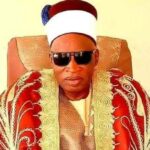The governments of Adamawa, Bauchi, and Gombe states have been urged to commence the process of implementing the National Framework of Action as soon as possible to reduce the rate of out-of-school children in the North East subregion.
The call was made by the United Nations Children’s Fund (UNICEF) at the end of a two-day Regional Stakeholders Engagement Meeting on Out-of-School Children and the Retention of Children in Schools held at the Conference Hall of the Emerald Hotel in Gombe.
UNICEF stated that it has developed the National Framework of Action to reduce out-of-school children in Nigeria in collaboration with the Universal Basic Education Commission (UBEC).
ALSO READ: EFCC to Embassies: Don’t charge visa, other services in dollar
Therefore, it tasked the authorities in Adamawa, Bauchi, and Gombe States to adopt and implement the framework of action urgently, which also includes a specific model for the retention, transition, and completion of education for all children.
It also ensures inclusive and equitable quality education and promotes lifelong learning opportunities for all, said Dr. Tushar Rane, Chief of the Field Office at UNICEF’s Bauchi Field Office.
The international body lamented that a staggering 10.2 million primary school-age children and an additional 8.1 million at the junior secondary level are out of school in Nigeria, positioning Nigeria as having the largest number of out-of-school children globally.
Dr. Rane said the framework and Retention, Transition, and Completion Model will guide their respective States in confronting the out-of-school children phenomenon.
The framework strengthens community accountability, mobilization, and uses innovations and technologies to increase access to quality learning and financing for out-of-school children in the States.
He assured that UNICEF will play a critical role, emphasizing, “we will not only showcase some of the good practices from different States but also globally.
ALSO READ: Dogara mourns Yobe monarch, Mai Tikau
“We will try to provide the technical support, monitoring support, identify what needs to be corrected, all to ensure that every child matters and none of them is left behind,” he emphasized.
Dr. Tushar Rane also emphasized the need for the sustainability of the program, stating, “the success lies in ensuring the State does it on its own with little support.”
Also speaking in an interview earlier on the state of out-of-school children in the state and efforts of the Government in stemming the tide, the Gombe State Commissioner for Education, Aishatu Maigari, described it as a menace that the current administration of Muhammadu Inuwa Yahaya had been working to address since it came on board in 2019.
According to her, deliberate policies have been employed through collaborations with UNICEF and the World Bank, which brought about programs like BESDA.
She said the ministry, along with the State SUBEB, had been working on out-of-school children using all the strategies known to them to mop up out-of-school children.
“In four years, we had mopped up 350,000 children, only to be told that we have 750,000 children out of school. So, as we mop them up, those coming into the sphere are so many, so we need to redouble our efforts into that.
“One of the issues we have seen is poverty. The State Government pays for their WAEC fees to motivate them to finish Senior Secondary school.
“For the Junior Secondary School, we offer the Basic Education Certificate Examination (BECE) free for all public and private schools to motivate them. We hope with these and other policies that will come in, we will see a change in statistics,” she explained.






